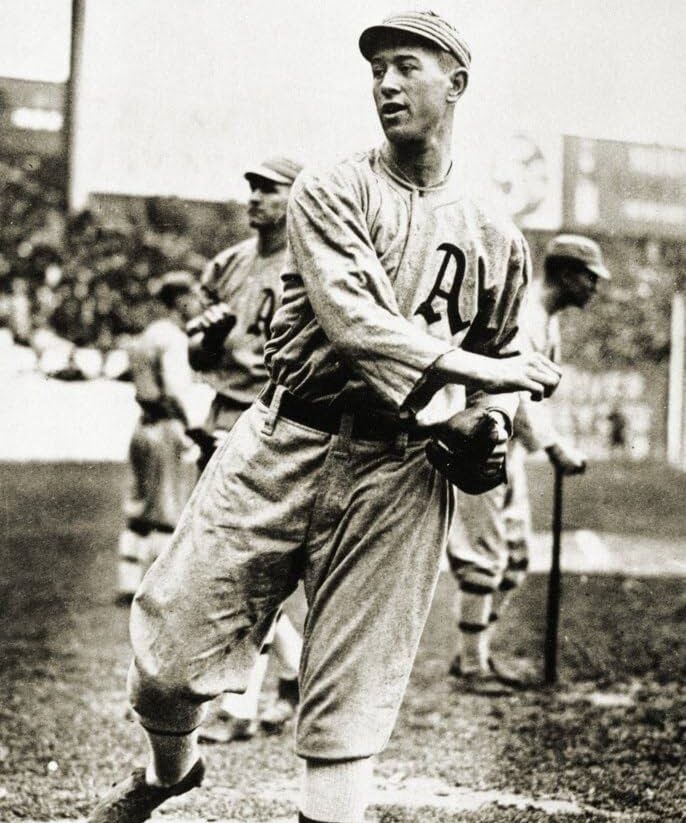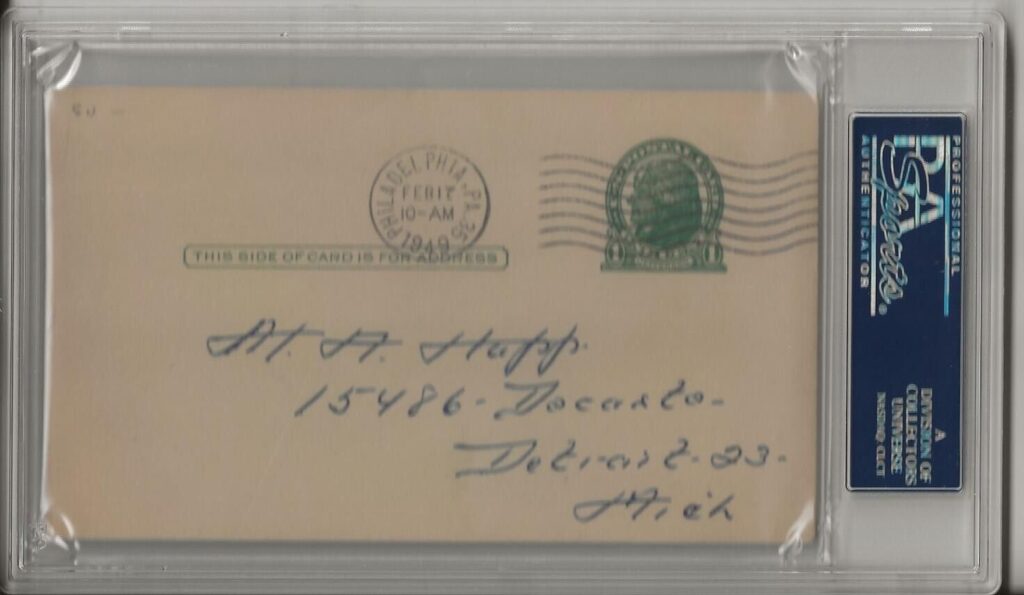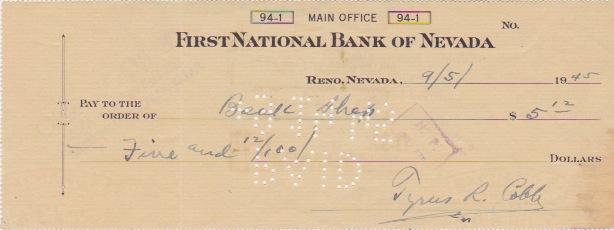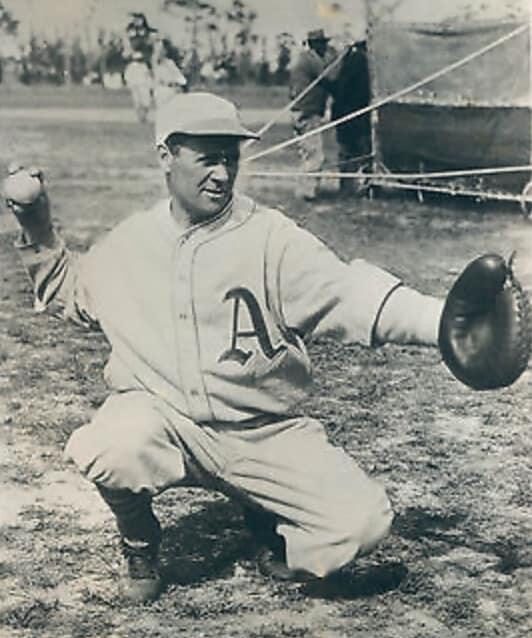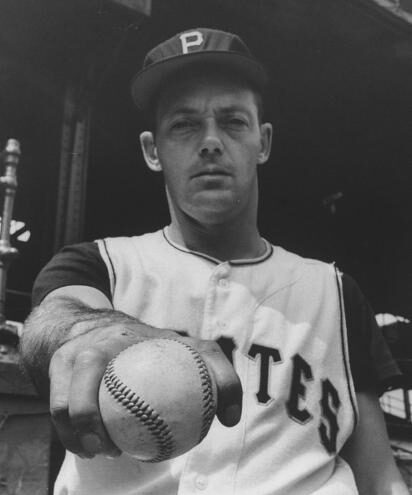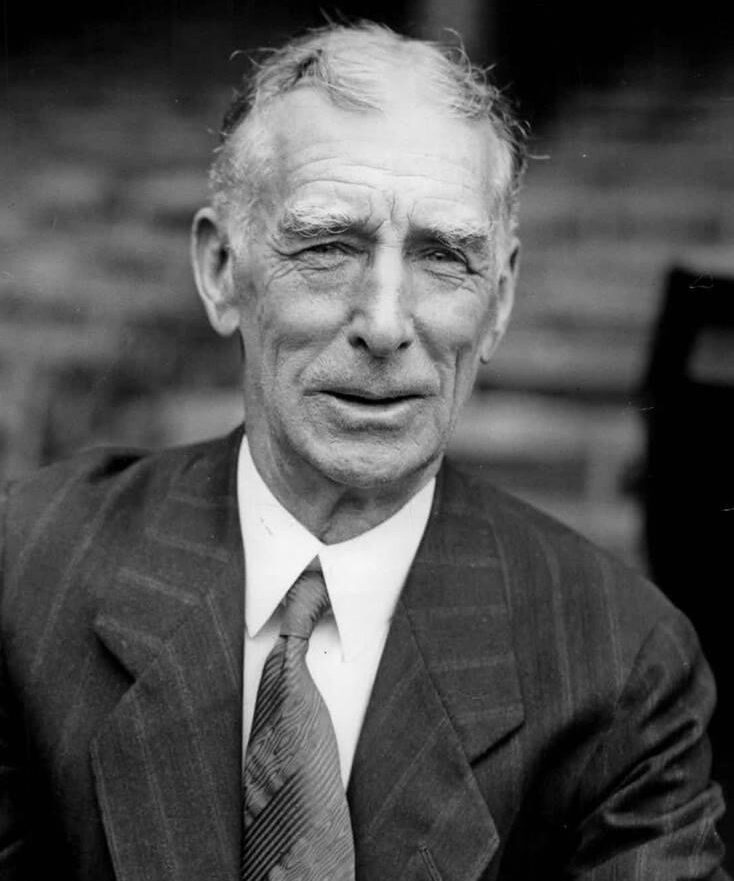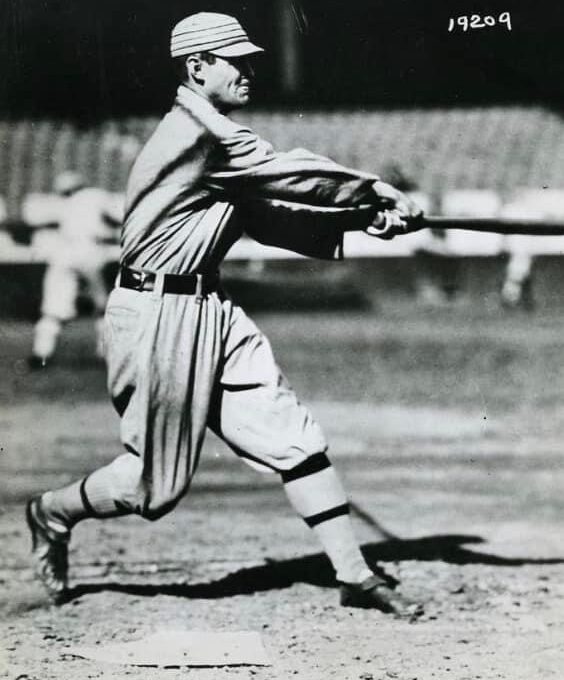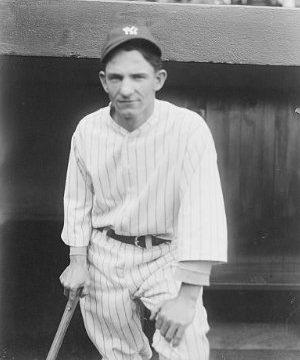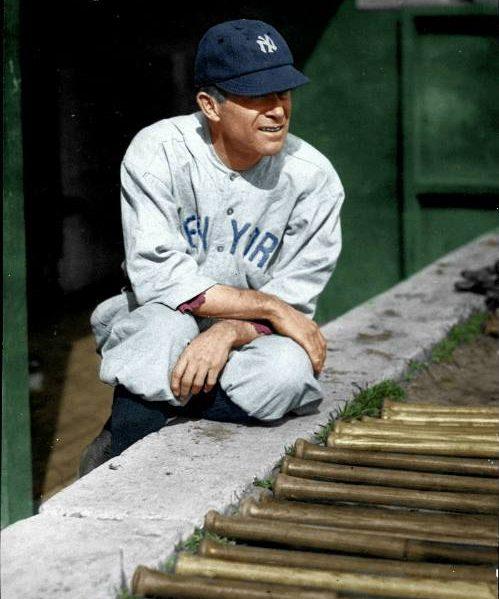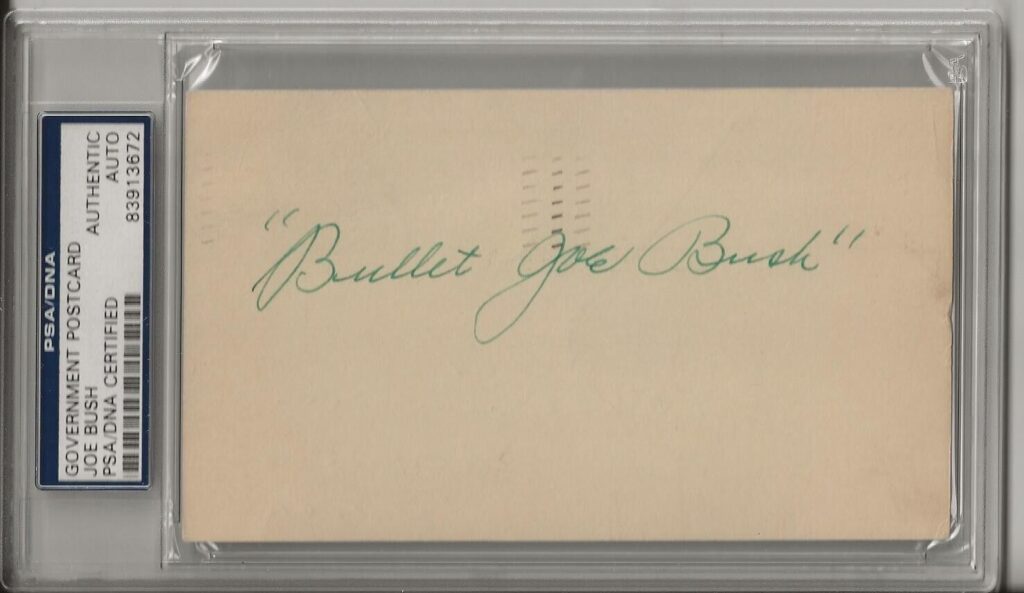
Bullet Joe Bush began playing professional baseball in 1912 for the Class-D Missoula club. By the end of the season the 19-year old right-hander made his big league debut for Connie Mack and the Philadelphia Athletics.
The following season he helped the Athletics win the World Series, going 15-6 with 3 saves, 6 complete games, and a shutout. In his only October start Bush went the distance, holding the Giants to one unearned run in a Game 3 victory.
In 1914 year Bush won 17 games as Philadelphia repeated as AL champions. He again got the Game 3 start and went the distance in a 12-inning loss to the eventual champion Miracle Braves.
During the offseason, Mack dismantled his dynastic crew. The Athletics went from 99 wins in 1914 to 109 losses in 1915.
Bush’s 1916 campaign was a curious one. On August 26th that year Bush twirled a no-hitter against the Cleveland Indians. It was one of few highlights for Mack’s A’s who won 36 games against 117 losses.
The fireballing pitcher suffered 24 defeats, the most in the majors. No big league hurler had more wild pitches than Bush. Despite these numbers, Bush’s ERA was a stingy 2.57; his 15 victories accounted for more than 40% of his team’s win total.
After 11 wins and a 2.47 ERA for the 99-loss Athletics in 1917, Bush was dealt to the Red Sox. His first year in Beantown resulted in a career-bests in ERA (2.11), complete games (26), and shutouts (7). The performance helped push the Sox to the World Series.
Bush pitched his third straight postseason complete game in Game 2, recorded a save in Game 4, and came away with his second ring.
Arm trouble limited Bush to just two games in 1919. Many in the game believed he was through. Instead Bush reinvented himself. Formerly a hard throwing hurler who relied on his fastball, Bush developed a new pitched called the forkball.
MLB.com’s glossary of the pitch says that Bush, “…threw the pitch as an alternative to his curveball, which he could no longer throw because of the strain it put on his already fatigued arm. Other pitchers of that era threw similar variations of the forkball, but Bush is generally the player credited with having invented it.”
With the new pitch in his repertoire Bush won 31 games for the Red Sox in 1920 and ’21. In December of ’21 Boston dealt Bush and 229-game winner Sad Sam Jones to the Yankees for 247-game winner Jack Quinn, future MVP Roger Peckinpaugh and two others.
Bush’s first season in New York was one of his finest. He tallied 26 wins, second in the majors to Eddie Rommel, and pushed New York to it’s second consecutive American League pennant. The Game 1 starter, Bush also pitched a complete game in Game 4. The Yankees dropped 5-game tilt to the cross-town Giants.
In 1923 Bush continued his form, winning 19 games as the Yankees repeated as pennant-winners. Facing the Giants for the third consecutive season, the Yankees won their first World Series in franchise history. Bush sparkled. The tough-luck loser in Game 1 when he allowed just one run, Bush tossed a complete-game three-hitter in Game 5.
From 1913-1923 Bush pitched in five World Series and earned three rings – each for a different club. In six Fall Classic starts he completed 5 games. Bush also pitched in relief in three October contests and finished World Series play with a 2.67 ERA in 60 2/3 innings.
After a 17-win season with New York in 1924 Bush bounced around, playing for five times in his last four MLB seasons. His final year featured a return to Philadelphia where he won 2 games.
After leaving the Athletics in 1928, Bush pitched three more seasons in the minors. During his 20-year professional baseball playing career Bush won 230 contests. In 17 big league seasons he went 195-183 with 20 saves, 225 complete games, 35 shutouts.
At bat Bush hit .253 with 83 extra-base hits, and 140 RBI in 1,239 career at bats. He made 80 appearances as a pinch-hitter and 11 outfield appearances spread out over all three positions.
Shown here is a government postcard signed by Bush in 1949.
